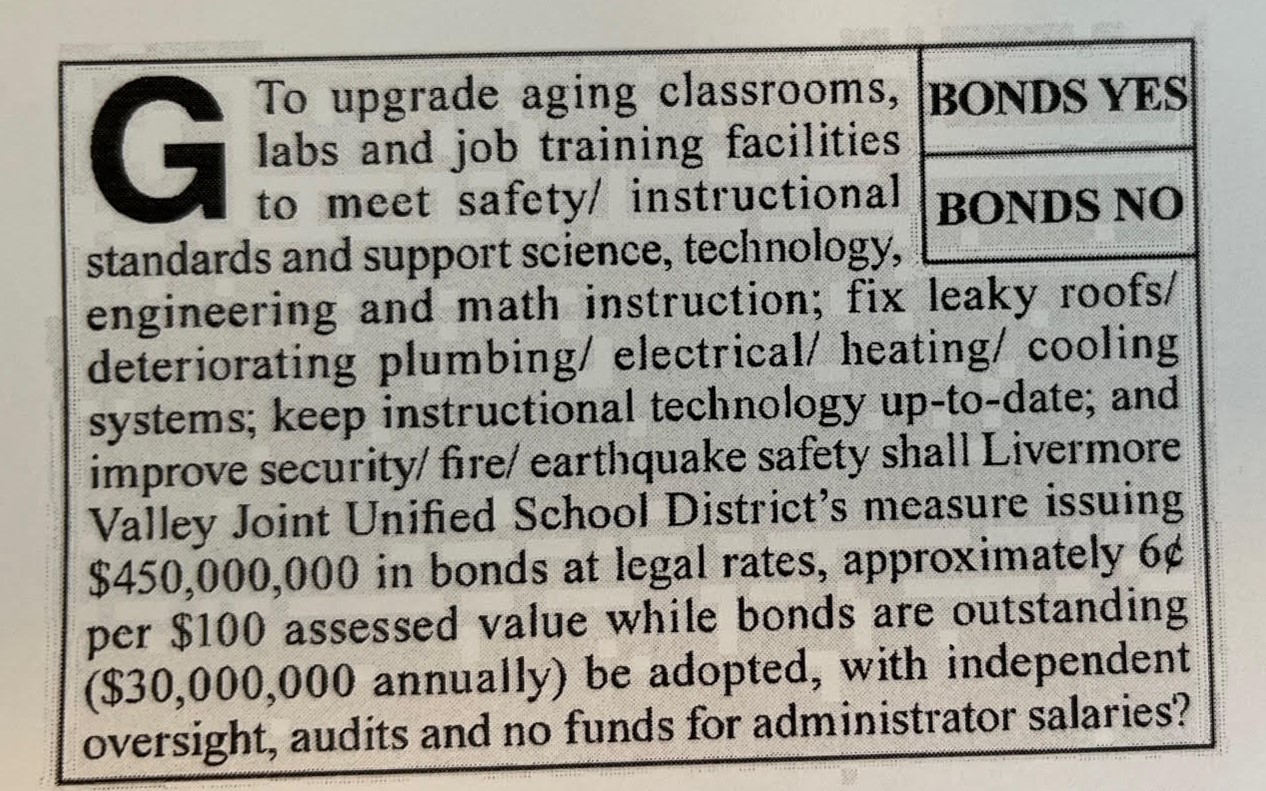There is a legitimate debate to be waged over the current two-thirds voter threshold for approval of local bond measures in California.
Some feel it’s too stringent, undermining the will of the majority. Others argue it’s an appropriately tough hurdle to ensure that there is broad consensus before saddling future generations with additional tax debt.
But asking voters to settle that debate, by placing Proposition 5 on the Nov. 5 ballot, is putting the cart before the horse. California lawmakers should have first fixed the current deceitful ballot and campaign practices of local agencies and businesses that financially benefit from passage of bond measures.
That didn’t happen. Which is why voters should reject Proposition 5. Reform the process and then we can debate whether to lower the vote threshold.
Proposition 5 would reduce the threshold for local government bonds for housing and roads from two-thirds to 55%. The two-thirds vote requirement for local bond measures has been part of the California Constitution since 1879.
In 2000, voters approved an exception for local bonds for school construction, which have since required only 55% approval. Proposition 5 would expand that carveout to bond measures for housing and infrastructure measures often proposed by local cities and counties. The new threshold would apply not only for future measures but also for the ones that are on the upcoming ballot.
Bonds are a form of borrowing, much like a mortgage. They must be repaid by taxpayers, usually over decades.
Statewide bonds — like those in the upcoming ballot’s Proposition 2 for school construction and Proposition 4 for environmental projects — are repaid with funds from the state budget. They don’t involve a direct tax increase and only require simple-majority voter support for passage.
But local bonds require property tax increases to cover the debt. So, when voters approve local bond measures, they are also approving property tax increases. Which is why there’s logic behind a higher threshold for approval.
But, as we’ve seen repeatedly in the Bay Area, the carveout for school bonds has been an electoral disaster. Proposition 5 would magnify the abuse.
We have witnessed local school officials, sometimes with questionable relationships with companies that stand to benefit, engage in deceitful political tactics and campaigns at taxpayer expense to pass their measures.
We often see ballot wording carefully crafted by political consultants to puff up the benefits of the measure, never mention the word tax and hide the true costs to taxpayers. Rather than fix these abuses, some state lawmakers have sought to enable and expand the deception.
Related Articles
Editorial: No, California inmates should not be entitled to refuse to do chores in prison
Editorial: California’s Prop. 4 favors politics over sound policy. Vote no.
Editorial: Prop. 36’s smart response to crime, addiction, homelessness
Editorial: Prop. 2 fails to fix broken California school bond program. Vote no.
Editorial: California Medi-Cal measure locks in special-interest funding
School districts often go to the ballot multiple times, but the ballot information for the latest measure never discloses how much property owners are already paying for previously approved bonds. We have witnessed fiscally reckless borrowing schemes hidden from voters and misleading forecasts of the size of future tax payments that would be needed to pay off the bonds.
School district officials brag to voters that they will be establishing required citizen oversight committees to ensure the bond money is wisely spent. But those committees are often pawns for the governing board that appoints them or, when they show independence and question expenditures, they are often ignored or blocked from receiving the information and help they need to do their jobs.
Until these sorts of problems are fixed, until the process is reformed, we should not be talking about lowering the approval threshold for more types of local bonds.
Voters should reject Proposition 5.












